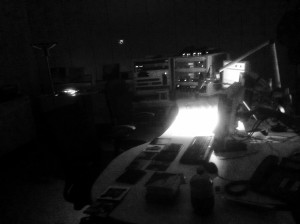„Taken as a whole, The Complete Works demonstrate that Harmonia did a small handful of things brilliantly well, and those happened to be things that no one else was doing. They also happened to sound like what various kinds of experimental music would sound like 20 years later and, I’m guessing, what some strains of it will sound like 20 years from now.“ (Mark Richardson on „The Harmonia Vinyl Box Set“)
DEUTSCHLANDFUNK – 19.12. – 1.05 Uhr bis 6.00 Uhr live mit M.E. – Jahresrückblick: Mette Henriette / Christina Vantzou / Laurie Anderson / Ivar Grydeland / David Torn / David Rothenberg / Polar Bear / Joanna Newsom / Julia Kent / Sufjan Stevens / Tigran Hamasyan / Matana Roberts / Kaczirek & Schneider / Africa Express \\\\\ Nahaufnahme (die britisch-norwegische Formation Food): Veggie / Last Supper / Molecular Gastronomy (alle Rune Grammofon) – Quiet Inlet / Mercurial Balm / This Is Not A Miracle (alle ECM) \\\\ Zeitreisen: Laughing Hands (Australien, 1981-1982), King Crimson (New York, 1981), Harmonia (Niedersachsen 1974-1976)
Und ein herzlicher Dank für einen Brief von Jan Reetze aus Pittsburgh, sowie die Bereitstellung verloren gegangener resp. unauffindbarer Musik von M. Ahrends, I.J. Biermann, und G. Mundt.
